Gone are the days when you open a paper with your morning coffee to peruse the day’s news. We’ve known that for decades, and yet DC theatergoers have tenaciously hung on to The Washington Post — and longtime Post critic Peter Marks — as the ultimate word on theater in town. Yes, the Post is a national treasure with resources, reputation, and readership greater than any other publication in town. Getting your name in the Post brings visibility it is impossible to get elsewhere. And yet, the economic model that enabled papers like the Post to pay critics a living wage is crumbling before our eyes, and as it crumbles, the amount of theater content featured in DC’s premiere publication will continue to decrease. Marks’ departure, precipitated by a generous buyout offer, is just the latest episode in a trend that is pushing theater criticism out of large publications, and we are unlikely to have another critic of his singular stature on the scene again.
So where else can theatergoers turn for local theater news and criticism? Well, on the surface, things are pretty grim. In recent years, local publications as diverse as Washington Jewish Week, The Washington Diplomat, and DCist, stopped publishing theater reviews. Other publications, notably District Fray Magazine, once a stalwart supporter of local theater under Editor-in-Chief Monica Alford, folded entirely.
Talk to any journalist and they will tell you that the main problem in the industry now is monetization: the old model (print newspapers) no longer works, and no one can figure out a new model that will pay the bills. When it comes to theater coverage, this results in a field that is populated by local news outlets struggling to survive and scrappy individuals “working” for the love of the art and little else.
But maybe, just maybe, these scrappy arts entrepreneurs will lead us to develop new models of arts journalism. There is no telling which of these diamonds in the rough will shine with enough support. At the very least, it means that we will never again live in a world where one singular view — usually the view of an older white male — dictates the success or failure of a show. The evolving, decentralized, and, let’s be honest, for the moment completely chaotic, new reality of theater criticism means that very, very few will make a living off it, but that many more will have the space for their voices to be heard. And that is a good thing.
As theatergoers adjust to a world without a staff critic at the Washington Post, we all need to adjust how we stay informed about the intellectual and cultural events in our community. Here are some outlets I turn to for local theater news. These individuals and organizations are still here, working against pretty tough odds to inform and engage the community in robust conversations about the arts.
Washington City Paper

How to access: While City Paper discontinued its print edition in May of 2022, it is still free to access online. Sign up for City Paper’s newsletters to get theater info directly to your inbox. (Side note: As a member-supported outlet, City Paper relies on readers to sustain it. Consider becoming a member to help maintain this reliable source of local news.)
Metro Weekly

How to access: Metro Weekly does not employ a paywall. Theater reviews can be found here.
DCist
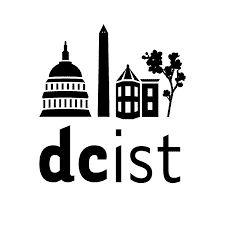
How to access: Elliot Williams’ arts and culture coverage for DCist can be accessed here.
The Washington Post

How to access: Washington Post theater coverage can be found online or in print form. Most of it exists behind a paywall. (But you know this already.)
Unprofessional Opinion
Like DC’s own masked theater superhero, Unprofessional Opinion is the nom de plume of a mystery writer who returned to the scene after a hiatus about a year ago. The writer publishes succinct, well-written, and highly opinionated theater reviews on the self-publishing platform Medium with content summaries on Instagram. While I don’t always agree with Unprofessional Opinion’s perspectives, I have come to admire them for the quality of their prose and insight. Bonus points for the intrigue behind the persona! Who is this masked theater bandit in our midst!?
How to access: Follow Unprofessional Opinion on Instagram at @unprofessionalopinion and on Medium here. Reviews published on Medium are then delivered to your email. Easy peasy.
DC Theater Arts

How to access: DCTA maintains a website, a free twice-weekly newsletter, and a social media presence on Instagram, TikTok, Facebook, and Threads (and has a currently inactive account on X). Follow what suits you best.
TheatreinDC

How to access: Bookmark TheatreinDC’s comprehensive Now Playing page for easy access to a roundup of reviews on each show. (Side note: TheatreinDC’s review aggregator is reminiscent of the wonderful Didtheylikeit.com aggregator, which is my favorite way of comparing reviews of Broadway shows.)
Theater District (podcast)

How to access: New episodes drop every other Thursday. Access podcast episodes through Theater District’s website and on all major streaming platforms. Follow them on Instagram at @theater_district.
Embracing Arlington Arts (podcast)
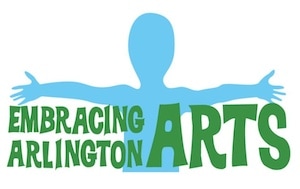
How to access: Find podcast episodes on the Embracing Arlington Arts website or on streaming platforms like Apple, Spotify, and Amazon Music.
Nothing for the Group
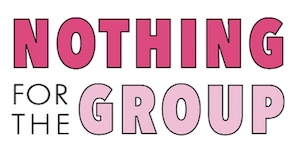
How to access: Subscribe to the newsletter on Substack and each new post will arrive in your inbox like magic.
Theatre Washington

How to access: Sign up for Theatre Washington’s weekly newsletter here. Additional resources, like the Theatre Washington “Show Selector” calendar, can be found here. News updates from the region’s theaters can be found by scrolling to the bottom of the Theatre Washington homepage.
WETA Arts, hosted by Felicia Curry (PBS Television)

How to access: Turn on your TV and tune into PBS! Or, for a more high-tech option, all episodes of WETA Arts stream on the WETA website here and on YouTube here. WETA’s YouTube channel also offers a theater-heavy “Things to do in the DMV” page here.
Maryland Theatre Guide and Broadway World DC
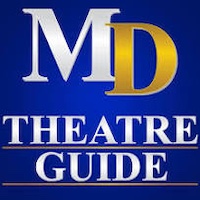
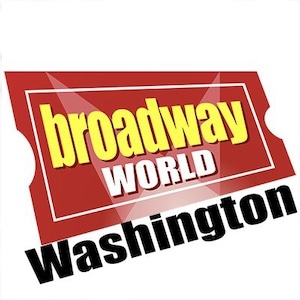
Instagrammers and TikTokers
A few intrepid fans have begun creating their own content on social media, primarily on Instagram and TikTok, platforms that allow people to share content without the burden of creating a website. Emerging voices on Instagram include @dctheatregoer, @dmv_theatre_review, @morristheatredc, and the aforementioned @unprofessionalopinion. And on TikTok: @broadwaybekahchica and @dctheatergoer.
How to access: Give them a follow and their content will appear in your social media feeds, immediately increasing the number of opinions you encounter before deciding what to see. (Side note: I also love the TikTok content being created by Signature Theatre and Baltimore Center Stage. These theaters hired young TikTokers and gave them free rein to do their thing. The result is often very fun.)
Just as there is a lot more theater going on in town than most people realize, there is also more theater news and criticism. We don’t need to rely on a single source. Check out these outlets and curate your favorites. Here’s to a new era of diverse, informed theatergoing!


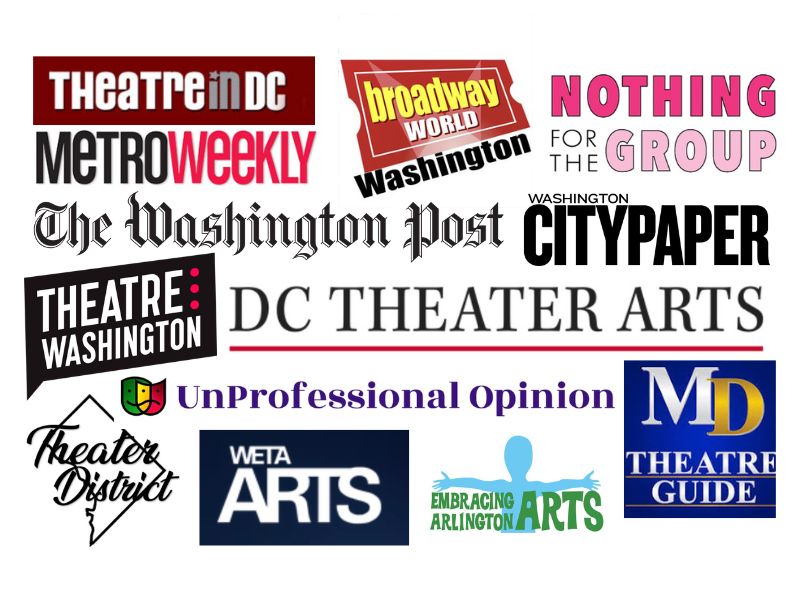



I am sorry that you endorse Unprofessional Opinion’s blog. Critics should stand by their opinions by putting their name on their writing. As a professional in the DC theatre world, my name is on my work and I have to stand or fall by the quality of that work. They should too. I tell any company I work with I am not interested in giving a comp to someone who chooses to be anonymous when reviewing our work.
On another note, while I am very sad the Post appears to be withdrawing support for our vibrant scene, I do not mourn the loss of Peter Marks whose view of DC theatre was myopic at best. He ignored some of the most interesting companies in town and the theatre department overall does a poor job of representing the depth and breadth of our offering, focusing on a much smaller number of companies and sometimes even giving one company more than one review or article despite citing lack of staff and space for the spotty coverage. If Marks is replaced I hope it will be with someone who can see beyond the big budgets and cushy seats of the larger houses, not to mention focus on DC rather than NY. Those of us who are interested in NY can easily access reviews in other media.
You make a good point about the ethical ambiguity in Unprofessional Opinion’s choice to remain anonymous. I do wonder if they do get comp tickets or not. My guess is that they are someone with another role in the industry who doesn’t want their reviews to conflict with their “day job.” But that’s just a guess.
And yes, the Post’s theater coverage during Peter Marks’ tenure was problematic for all the reasons you cite. I’m hoping that Rhoda Feng’s recent byline in the Post indicates that they will include more diverse voices going forward?
Thank you for weighing in!
I know for sure at least two companies I have worked with who responded to a request for a comp. No one working box office recognized the individual when he showed up to see the show.
I also want to applaud the great work of Robert Bettmann and Day Eight who anticipated the need for more trained critics and more venues to publish DC arts criticism. Day Eight’s arts journalism fellowship, annual arts journalism conference, and summer intensive are wonderful opportunities that strengthen the pool of local arts journalism.
Pam Roberts, BroadwayWorld
Yes! I also love the work of Robert and Day Eight. I thought about adding them here but decided to limit it to media outlets creating news specifically about DC theater.